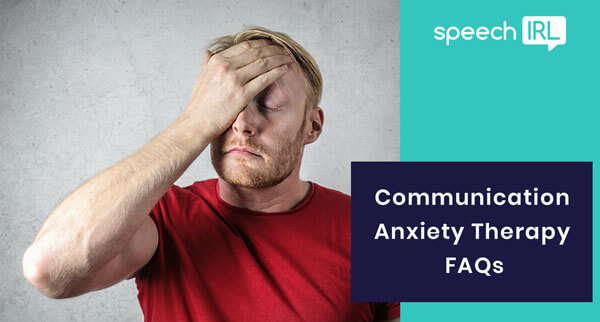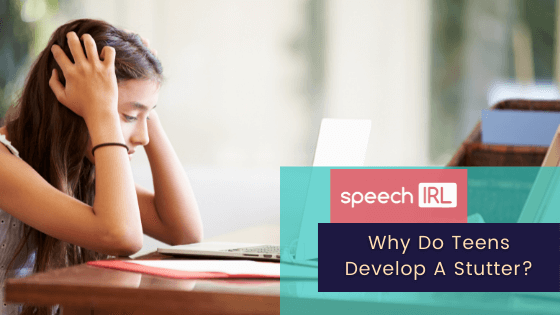What is acceptance based therapy, really? And what role does it play in speech therapy? In this article, we begin tunpack the complexities around acceptance and progress.
Ah, the holidays. We often sit and reflect on where we are, where we’ve been, and where we’re going.
In the spirit of reflecting with gratitude, our pathologists share their thoughts and experiences on how to balance the present moment and our hopes for the future.
“So, how has speech stuff been this week?”
I was working with a client who stutters, a college student. It was the beginning of the school year, a season of transition and change that can often be accompanied by speech challenges.
“Pretty good, actually! I met someone else who stutters in one of my classes, and he recommended this book. It’s called The Stuttering Cure.* He said it helped him a lot. So I started reading it this week and doing some of the things. It’s definitely helping.” He paused. “Have you heard about this book?”
My licensed, certified, certificate-of-clinical-competence in speech-language pathology wheels were already turning. Have I heard of this book? Oh yes. More specifically, I’ve heard of the author. He is one of many self-styled “stuttering coaches” that live on the Internet. A person who stutters figured out a solution for himself, and he established a mini-empire helping others find the light.
Read moreAs some of the stigma around therapy of all kinds is removed, we’re beginning to discover new attitudes, stressors, or behaviors in ourselves that we may want to address in some therapeutic setting. In identifying some of these for yourself, you may have come to learn about “communication anxiety” and “communication anxiety therapy” — but what does that mean?
Here, our clinician Michelle answers some of the most popular questions surrounding communication anxiety therapy, and how you can determine if this course is right for you.
Read moreby Amina Dreessen, CF-SLP
“If you have come here to help me, you are wasting our time. But if you have come because your liberation is bound up with mine, then let us work together.” – Lila Watson
Over the last two years, I completed my master’s degree in Speech Language Pathology. While my master’s program was incredibly rigorous and taught me many important things about speech and language, I found myself noticing by the end of it that we had failed to learn the most important thing of all: that being a good clinician is as much about helping yourself as it is about helping others. Perhaps this is something that an academic program can’t really teach, and so I’m grateful to the life experience that has brought me to this awareness as I begin my first year as a Speech Language Pathologist (SLP). By telling a piece of my personal story here, I hope to illuminate for fellow SLPs, clients and their family members — and anyone interested in communication in general — what I mean when I say that an SLP’s liberation is bound up with the liberation of the people we work to help.
Read moreAll of the important things I’ve come to know about speech therapy I learned through my clients.
Today’s story is about the therapeutic power of listening.
-----
One of my most impactful client-teachers was a man with a TBI (traumatic brain injury). He was a very successful professional, decorated with awards of recognition in his industry. He had sustained an workplace injury and was diagnosed with a "mild" TBI. One year out, he was still experiencing difficulty with memory, sensory processing, neurogenic stuttering, and attention fatigue. Formerly a confident and accomplished public speaker, he had now developed significant anxiety and shame around even the simplest of communication interactions, like ordering coffee or conversing with friends. Since the accident, he was receiving increasingly negative responses to his communication, even from family and colleagues.
Read moreStuttering most often begins in early childhood, during the preschool years. Studies typically define this as between the ages of two and five years old. While it can be alarming when a young child begins to struggle with speaking, most people know that this is relatively common among young children. Next steps are easy to figure out: talk to your doctor, consult a speech-language pathologist. In most cases, children will naturally recover without the need for therapy.
But what if a person starts to stutter when they are twelve? Fifteen? Nineteen? What’s that about? Stuttering doesn’t just happen suddenly to adolescents or young adults...right?
The short version: Yes, sometimes stuttering does start in adolescence-- even the late teen years. NO, this isn’t always psychogenic (a result of trauma) or neurogenic (result of a brain injury). Sometimes it’s just regular, garden-variety, childhood onset stuttering that decided to show up later than usual.
It can be tricky to track down information on the cause of a newly stuttering teenager. Families who find themselves in this situation can be panicked, seeking MRIs from neurologists to rule out brain tumors, and desperate for answers when the doctors say everything looks normal. This is not normal!
So. Let’s talk about this. Late-childhood onset stuttering.
Read moreThe first place I went for help regarding my stuttering was a psychologist. On the surface, it may not make much sense, but it made perfect sense to me. Sometimes I had difficulty talking, and sometimes I didn’t. I could say the words fine when I was by myself, but I would block on all of them when someone else was around. My stuttering caused and was caused by anxiety, frustration, embarrassment, and anticipation. It was a vicious cycle. Because of this, I fully believed the cause of my stuttering was psychological.
People who stutter often end up in the hands of psychologists, but should stuttering be discussed in psychotherapy? If so, how? What is the best counseling approach for people who stutter? How do you talk about it if you don’t know a lot about it?
It’s complicated. Good speech therapy for stuttering addresses the psycho-social components of stuttering. However, some people need additional support for other mental health concerns which may or may not be related to stuttering. Due to the significant life impact stuttering can have and the co-occurrence of depression and anxiety amongst people who stutter, it is common for folks to be in both psycho-therapy and speech therapy. The overlap between the role of a psychologist and the role of a speech therapist in stuttering can be tricky. Here are some dos and don'ts for psychologists to keep in mind when working with people who stutter.
Read moreAs “lived experience” becomes more prominently valued (and evidence-based) in the therapeutic professions, working solely on skills is no longer a sufficient therapy plan. Impactful speech therapy needs to support bringing your communication skills, and your whole self, by extension, into the world.
The summer of 2021 is here, and what a summer it seems we are expecting. Concerts, restaurants, festivals, and vacation experiences are back. We can get dressed up for fancy weddings, sing together at religious services, and cheer on our favorite sports teams. We can have real face-to-face conversations and experience the spontaneous kind of communication that is hard to access over Zoom.
While many people are eager to live their best post-COVID life as the US reopens, there are very many people who are dealing with a new kind of anxiety: how do I interact with people again? This may not rise to the level of clinically significant social anxiety, but I would describe many people right now as feeling socially apprehensive.
If you’re the kind of person who struggles with communication even a little bit, for any number of reasons, COVID may have put you out of practice. You enjoy having relationships and want to be around people, but may be experiencing a sense of dread or fear of impending awkwardness at the thought of foraying back out into the social world.
Communication is a bit like a muscle: if you don’t use it for a while, your skills can get stiff and clumsy. Just like a prolonged break from physical training, there are recovery principles for communication ability. If you’re ready to see others again but feel apprehensive because of rusty communication skills, here are a few tips to help you “limber up” and ease back into the world of social interaction.
Read more
Chicago, IL
312.870.0352

Chicago, IL
312.870.0352

8 S Michigan Ave Suite 812
Chicago, IL 60603
312.870.0352

8 S Michigan Ave, Suite 812
Chicago, IL 60603
312.870.0352








